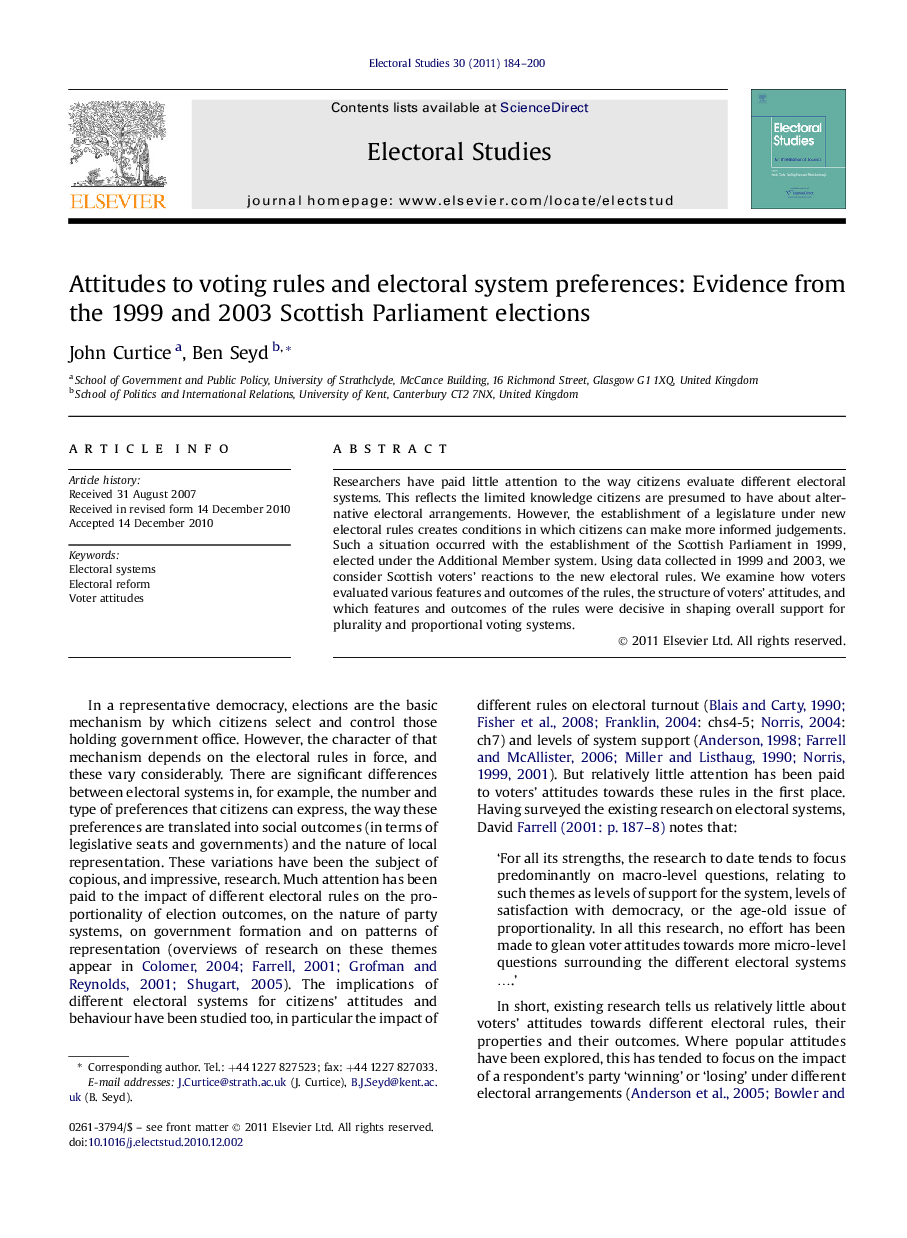| Article ID | Journal | Published Year | Pages | File Type |
|---|---|---|---|---|
| 1052242 | Electoral Studies | 2011 | 17 Pages |
Researchers have paid little attention to the way citizens evaluate different electoral systems. This reflects the limited knowledge citizens are presumed to have about alternative electoral arrangements. However, the establishment of a legislature under new electoral rules creates conditions in which citizens can make more informed judgements. Such a situation occurred with the establishment of the Scottish Parliament in 1999, elected under the Additional Member system. Using data collected in 1999 and 2003, we consider Scottish voters’ reactions to the new electoral rules. We examine how voters evaluated various features and outcomes of the rules, the structure of voters’ attitudes, and which features and outcomes of the rules were decisive in shaping overall support for plurality and proportional voting systems.
► Voters' views about electoral systems do not reflect the elite level debate. ► Many like proportionality but dislike coalitions. ► Key criteria for voters are a system's perceived fairness and stability. ► These criteria matter above and beyond partisanship. ► Partisanship matters as a cue rather than because a party has won or lost.
